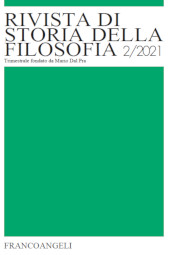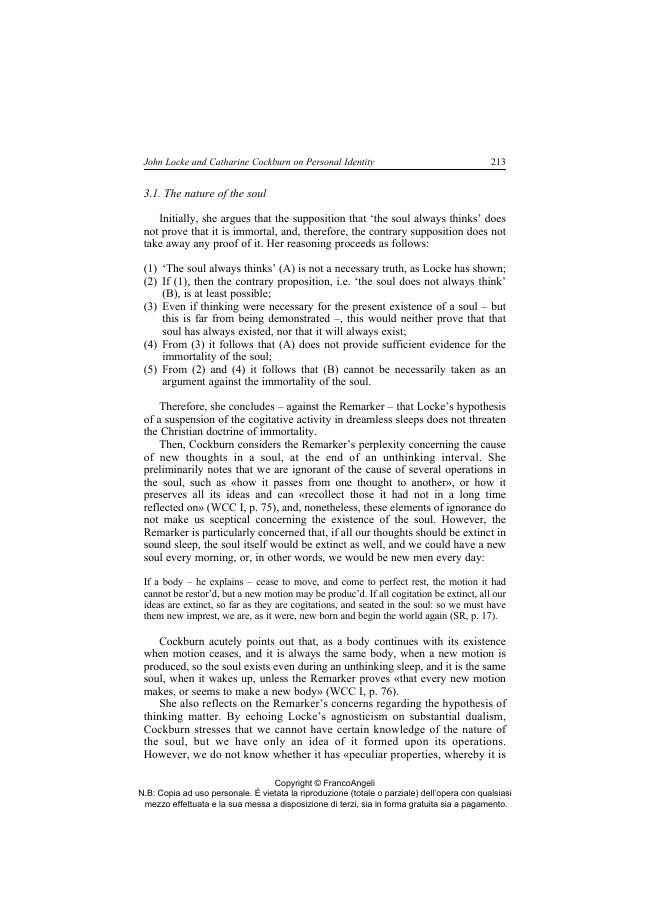2021 - Franco Angeli
Articolo
Versione Digitale
Download | Copia/incolla | Stampa
John Locke and Catharine Cockburn on personal identity
205-220 p.
- John Locke's account of personal identity (Essay 2.27) is one of his most discussed theories. Opposing the Cartesian ontology of mind, Locke argued that the soul does not always think for thinking is simply one of its operations, but not its essence , and that personal identity consists in consciousness alone. Against Locke, an anonymous commentator published the Remarks upon an Essay concerning Humane Understanding (169799) charging Locke's view with possible immorality. Catharine Cockburn rebuffed the Remarker's objections, in her Defence of Mr. Locke's Essay (1702), depicting his view as more dangerous for morality than Locke's. This paper shifts the focus from Cockburn's defence of Locke's moral thought, to her apology for his theory of personal identity, including his probabilistic arguments in favour of the immortality of the soul.
- This shift of focus yields an alternative account of Cockburn's originality: first, because she offered a nonsubstance interpretation of Locke's theory of personal identity, that, for its time, was unusual, and remains relevant for contemporary philosophical debates over Locke; and second, because, following Kristeller, in the very act of defending and articulating anew Locke's theory, Cockburn in some sense appropriated it. [Publisher's text].
-
Informazioni
Codice DOI: 10.3280/SF2021-002001
ISSN: 1972-5558
PAROLE CHIAVE
- Locke, Cockburn, Personal Identity, Immortality, Nonsubstance reading
-
Nello stesso fascicolo
- John Locke and Catharine Cockburn on personal identity
- Charles S. Peirce e la teoria dell'evoluzione di Darwin : alcune osservazioni su un possibile fraintendimento
- Antonio Labriola nella crisi del marxismo
- Politica ed esistenza : Rousseau in Germania tra Thomas Mann e Carl Schmitt
- Tra ontologia, logica e linguaggio : le interpretazioni ottocentesche delle categorie di Aristotele
- The Tree-reading of the Tractatus logico-philosophicus and the recent debate on it.
- Leibniz lettore di John Toland : le Annotatiunculae subitaneae a Christianity not mysterious
- Recensioni



